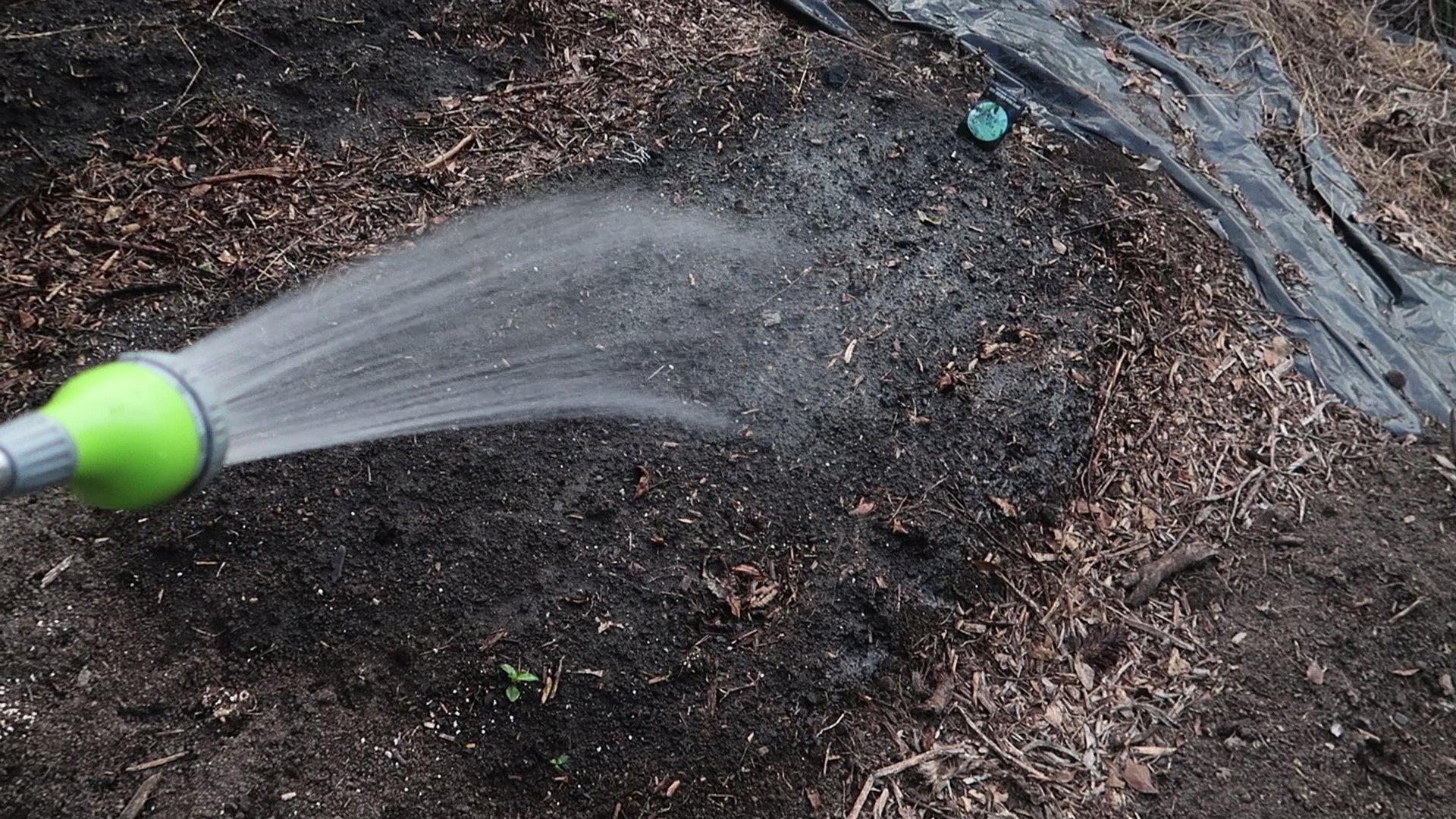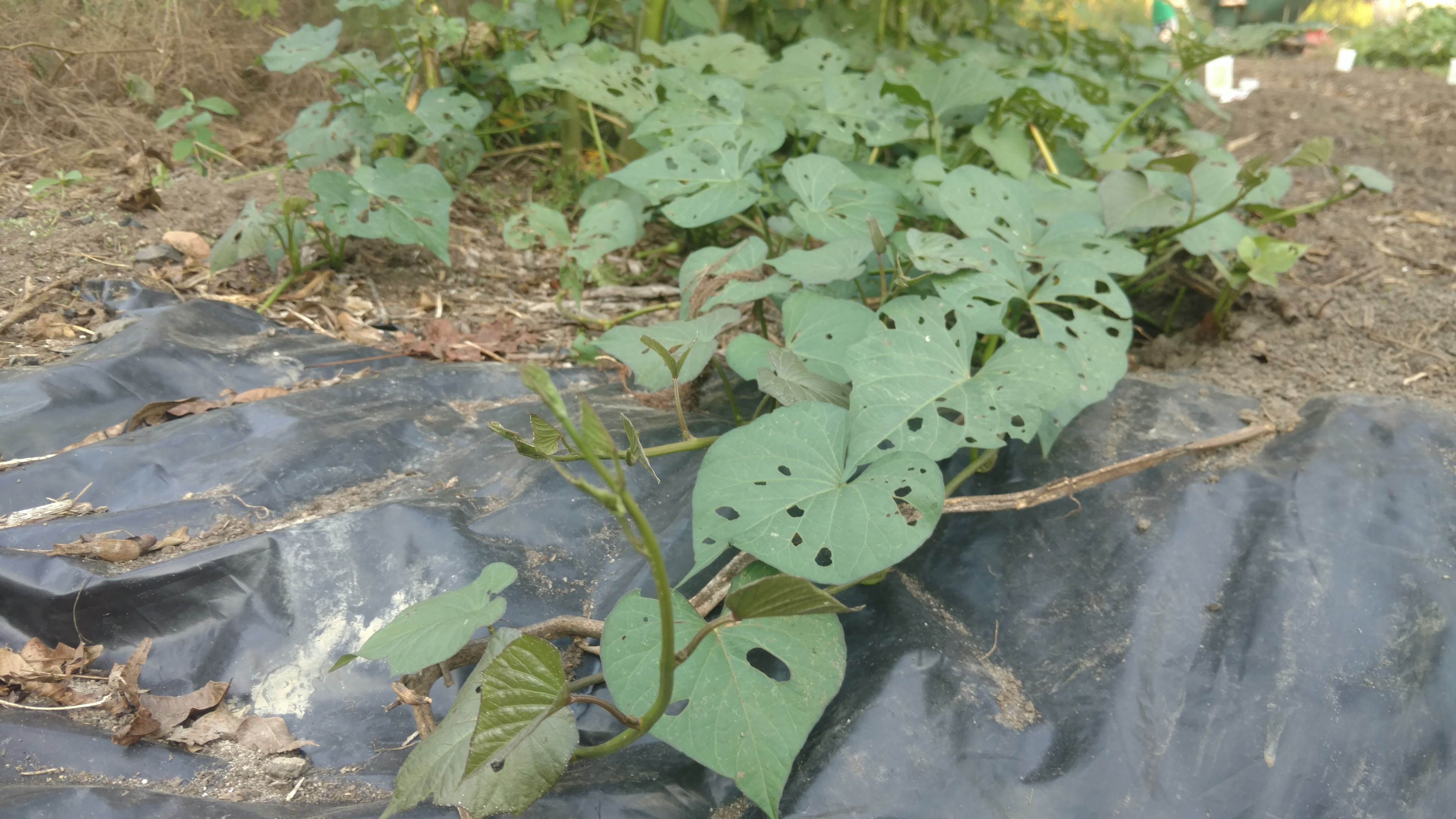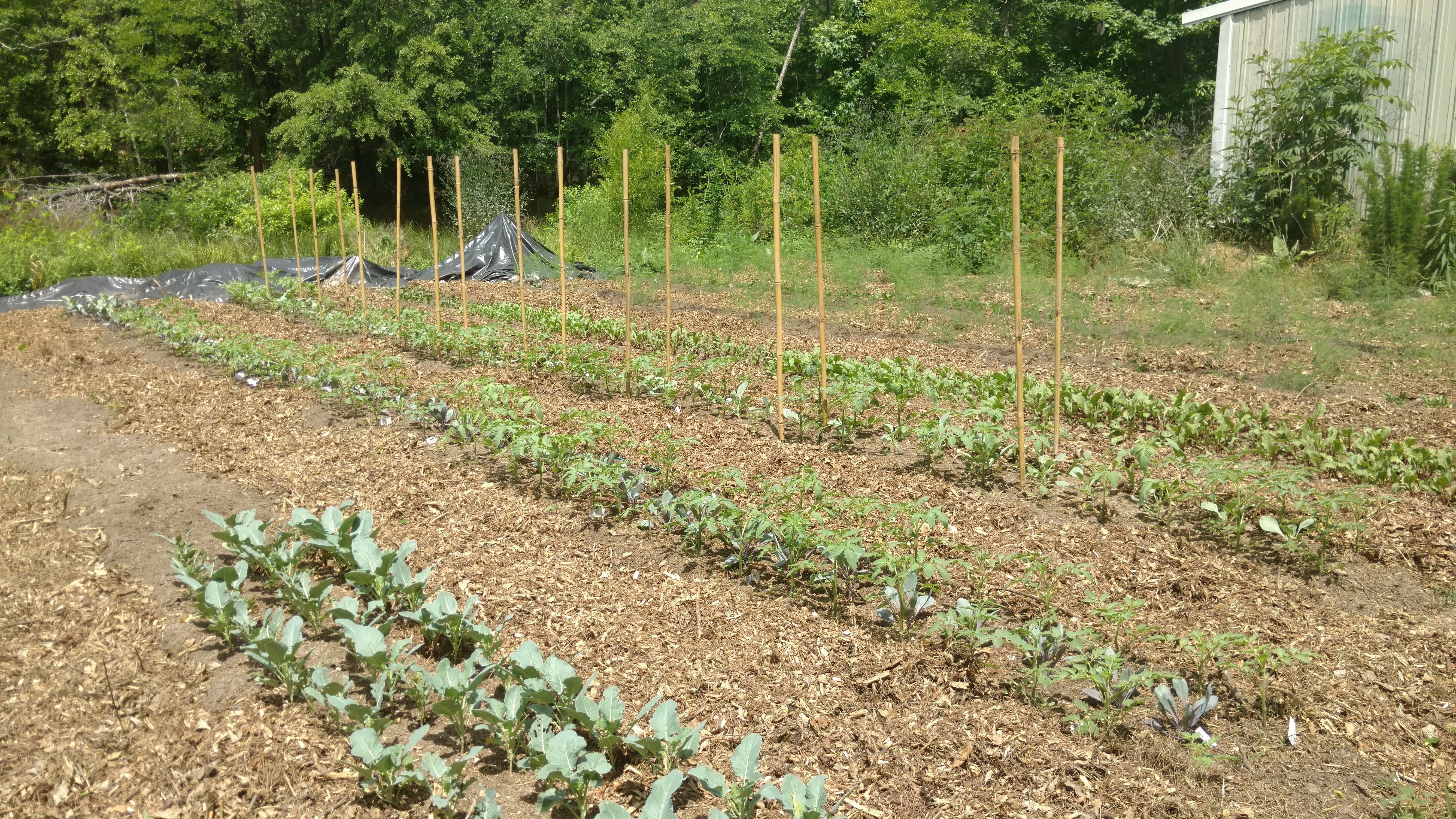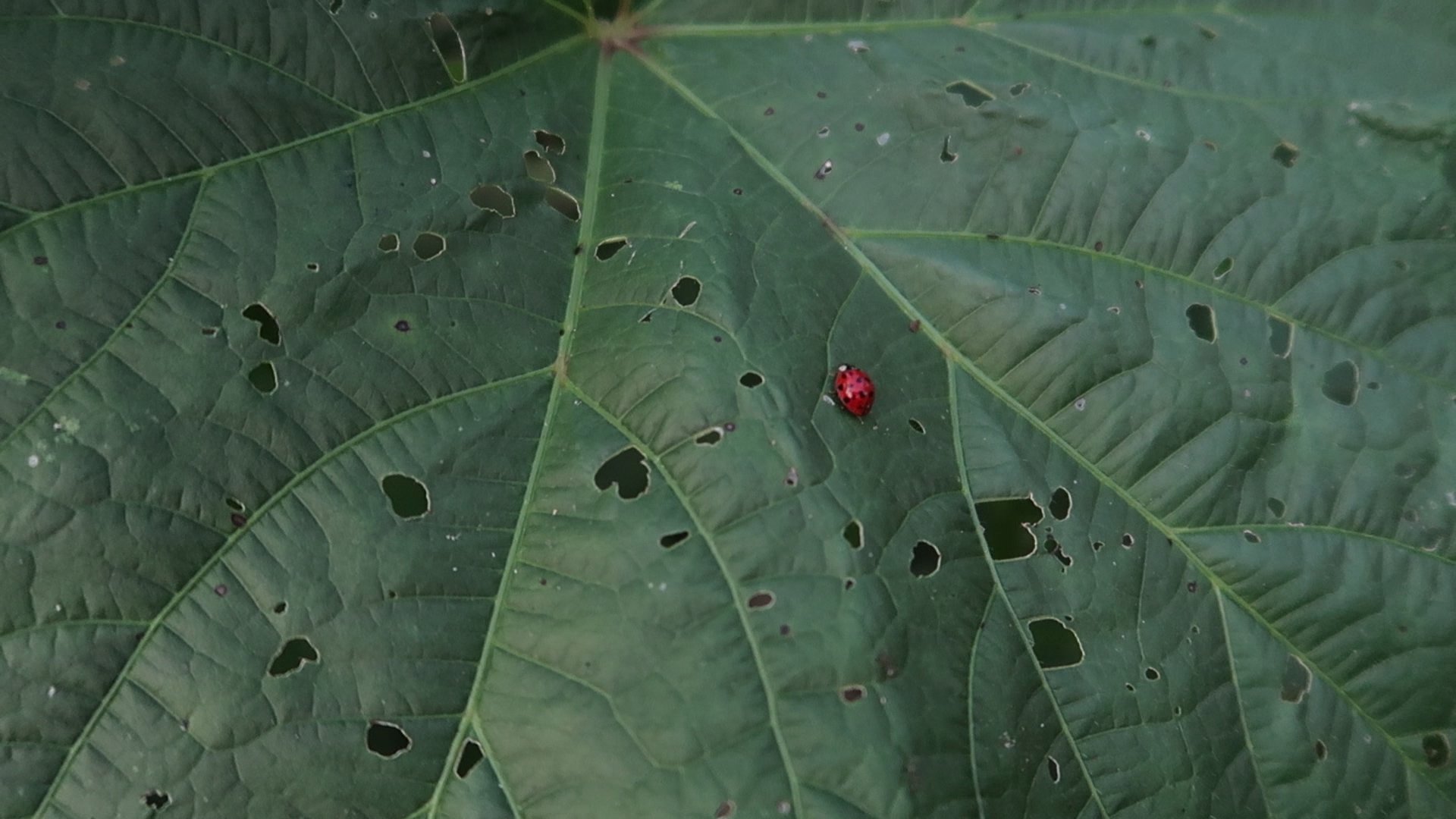

Get Started!
We have always strived to be as self-sustaining as possible. We try to grow as much of our own food as we can. There are many reasons why this is so important to us.
Being self-sustainable is beneficial to our health, wealth and the environment. We eat healthier, nutrient dense food free of pesticides, when we eat our own homegrown food. Our grocery budget is way less than most families because we don't buy much from the store when our harvest is coming in strong. Fossil fuels and pesticides are not wasted on us when it's our own backyard. These things mean a lot to us!

Image Source
While experience goes a long way in gardening, there are so many things that you can grow without a green thumb! Just knowing some of the basic skills and paying attention to the important things can go a long way towards becoming self-sufficient! If you focus on learning you will soon know enough to get a great yield! Just keep at it!
Okay, so you are probably wondering, how!? That is where I can help! With just a few tips you can be on your way to creating a successful, self-sustaining vegetable garden!

Most Important Thing!
Many people have asked me what they can do to be a good gardener. I always have the same answer!
SOIL!
Like location is to real estate, soil is to gardening! If you can do one thing at the start of your path to gardening and self-sufficiency it would be to invest into your SOIL! The best soil you can buy or make is so important. The soil is literally the foundation to a healthy garden. If you have access to your own compost and composted manure you are off to a great start!

Many local feed and seed type stores carry a wide selection of soils that you can purchase. We have done this and had whole truckloads of compost dumped where we intended to grow. We have also bought composted manure by the bag from big box stores. Luckily, we are now able to build our own soil with our goat manure and straw from the stalls as we clean them out. This has been our best garden yet because of this rich soil!

Practice Makes Perfect!
Once you have some good soil to plant in the next most important thing to do is start planting! I always recommend that beginners get some veggie starts from a local garden center and plant them according to the label directions in regards to spacing. Keep it simple at first and just try a few of your favorite veggies and see how it goes. Starting from seed is fun too but may be more of a challenge for a beginner.
Make sure you spend time with your garden just like you would a new pet. Give it plenty of attention and be sure that it doesn't dry out or drown. You don't want it dusty dry or muddy wet, but just right. That takes practice believe it or not. Not watering properly is one of the biggest mistakes I have seen people make.

If at first, you don't succeed try, try again! I can't even tell you how many plants I have had die on me. But I kept trying to grow things and eventually had much more success. A little practice goes a long way!

Pay Attention!
Your plants will let you know if something is wrong, they will give you clues as to what is ailing them. You should look at your plants every day, if even for a short amount of time. Not only will this help you catch things early but it is also quite therapeutic. I love walking through my garden in the morning with a cup of coffee in hand and just enjoy the moment. I use this time to take note of soil moisture level, insect damage, yellowing or browning of leaves, wilting, or possibly even what is in need of pruning or harvest.

When you catch these things early on you can usually resolve most issues. You can take pictures of the damage and/or insects and research what they are and how to manage it organically. I'm always willing to help people with pest identification and what to do about them.
Keep a close eye on things and act quickly to resolve any issues to keep your loss to a minimum. Plants don't just die overnight unless of course, you have a herd of deer come through and eat the whole plant which can happen. Trust me, I know from experience.

Mulch is Your Friend!
Mulching your plants after they are planted is a very good way to get great results in gardening! It can be layers of cardboard or nonglossy newspaper, hay or straw, fallen leaves and grass clippings, or woodchips.
Mulch helps in three ways, at least! First, it helps hold moisture in the soil around the roots where you want it. Once a plant is established it should be able to survive pretty well without a lot of excessive watering if you have a thick layer of mulch. Secondly, it acts as a weed barrier so that you can focus your time and energy on things other than weeding all day. Last but not least, it provides a great source of food to beneficial bacteria, worms, and mycelia which eat the material and convert it into rich soil for your plants to thrive off of. Building your soil a little at a time, by adding new mulch seasonally, keeps your soils nutritional balance stable for strong plant development.

My garden got a thick layer of mulch this spring, and when I was distracted by other homestead emergencies over the summer, it THRIVED! I didn't weed or water once!!! It really WORKS!

What About Pests?
Pest issues can cause a lot of fear and concern to a new gardener. I am here to tell you it is not only normal to have pest it's OKAY!. Some pest are definitely worse than others. But if you are paying attention and catch it early you can treat it organically and get it under control.
I think the hardest thing to get people to understand is that you do not have to eliminate ALL the pest to be successful. Having some small numbers of pest is going to attract beneficial insects that will eat the bad bugs. As my mother always says, It's like ringing the dinner bell! Knowing your pest threshold will help you understand when to act.

The first step of pest control is monitoring your garden for damage or actual insects. Next identify the insect or disease. Then decide when to treat it and what organic product is best for the job. Really the first step is completely up to you! If you spend time in your garden daily you will notice right away when something is wrong. The rest is easy! Easy, because you don't have to be a pest expert when you have me to help or even Google if you prefer.
There are so many people like me that are happy to identify the pests, answer questions, and provide organic solutions. Just reach out and ask, I'm here!

Good Luck!
So no matter what level of experience you have, you too can become Self-Sustainable! At least for most of your vegetables, if you follow these tips! My advice is to dive in and get started as soon as possible! Whether that means getting soil and compost acquired throughout the winter and planting in spring or going all in and start NOW with a great fall garden!
You CAN DO IT!

Thank you for reading and watching Wholesome Roots!

Please Upvote, Resteem, and Reply down below! Thank you!
E-mail wholesomerootsblog@gmail.com
YouTube
Steemit
Patreon
Blog
Google+
Mangosteem
Slack SteemitHomesteaders
Homesteading on Steemit
The Unmentionables!
